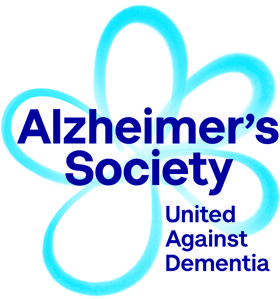Published: 24/01/2023
Dementia is a progressive disease that affects memory, thinking, and behaviour. It is caused by damage to the brain cells. Early signs of dementia can be subtle and are often missed or mistaken for regular age-related changes.
Knowing how to spot the early signs of dementia can help families to get help at the right time. Live-in care is often recommended for dementia patients as it allows them to stay in familiar surroundings.
The 10 early signs of dementia can be divided into three categories: cognitive, behavioural, and physical.
- Cognitive symptoms include difficulty with language, memory problems such as forgetting recent events or conversations, difficulty concentrating, and disorientation to time and place.
- Behavioural changes include decreased initiative for tasks or activities that used to bring pleasure, decreased interest in social activities and hobbies, difficulty making decisions or solving problems, and changes in personality.
- Physical signs of dementia include fatigue, loss of balance or coordination, muscle twitches or tremors, poor handwriting and unsteady gait
It is important to note that not everyone with these symptoms will have dementia. If you are concerned about a loved one, speak to your GP or health worker to find out more about the condition and how you can get help.

What is Dementia?
Dementia is a progressive, degenerative condition that affects the brain's ability to think, remember and communicate. It can be caused by damage to the brain cells from diseases such as Alzheimer’s. Symptoms vary from person to person and usually worsen over time. As dementia progresses, it can affect a person’s daily activities including their ability to perform basic tasks such as getting dressed, eating and bathing.
It is important to recognise the early signs of dementia so that help can be sought and care plans put in place. Early diagnosis can mean better management of symptoms and improved quality of life for the person with dementia.
How is Dementia diagnosed?
Dementia is diagnosed by a doctor or specialist, usually through a combination of physical and cognitive assessments. These tests help to assess memory, concentration, problem-solving ability and language skills. There may also be blood tests to rule out other conditions that could cause similar symptoms.
If a diagnosis of dementia is confirmed, the individual can access specialist treatments and therapies, such as memory rehabilitation programmes, to help manage their condition
Live-in care can be beneficial for people with dementia, allowing them to remain in familiar surroundings while receiving professional, one-on-one support from a dedicated carer. This kind of care has been found to have a positive impact on quality of life.
What are the 10 early signs of Dementia?
If you're concerned about a loved one, look out for the following signs of cognitive decline. Remember that many of these signs are also common with other conditions, so always seek professional advice to secure a diagnosis.
1) Memory problems that disrupt daily life
Memory problems are one of the earliest and most commonly recognised signs of dementia. A person with dementia may forget recent events, conversations, or where they are. They may find it difficult to concentrate and take in new information. Memory problems can disrupt daily life and make it difficult to carry out everyday tasks.
2) Difficulty completing familiar tasks
People with dementia may find it difficult to complete familiar tasks, such as cooking or dressing. This can be frustrating and cause a lot of stress for both the person with dementia and their loved ones.
3) Confusion about time, place, or person
Dementia can also cause disorientation and confusion about time, place and people. A person with dementia may not know what day it is, where they are, or who they are speaking to. This can be very distressing for them and their loved ones.
4) Poor judgement or decision making
People with dementia may make poor judgement calls or decisions, which can lead to dangerous situations. For example, they may forget to turn off the stove after cooking or wander off without telling anyone where they are going.
5) Difficulty reasoning or problem-solving
As dementia progresses, a person's ability to reason and solve problems diminishes. They may struggle to follow a recipe or figure out how to use new technology.
6) Withdrawing from activities or socialising
A person with dementia may lose interest in activities they used to enjoy and withdraw from socialising. They may become more reclusive and isolate themselves from friends and family.
7) Changes in mood or personality
Dementia can also cause mood swings and changes in personality. A person with dementia may become irritable, argumentative or aggressive. They may also become withdrawn and depressed.
8) Difficulty speaking or understanding language
As dementia progresses, a person's ability to speak and understand language diminishes. They may have trouble finding the right words to express themselves or understanding what others are saying.
9) Movement problems such as tremors or muscle twitches
As dementia progresses, it can lead to physical problems such as movement issues like tremors or muscle twitches. These can make everyday tasks difficult and exhausting for the person with dementia.
10) Unexplained weight loss
People with dementia may experience unexplained weight loss. This can be due to a number of factors, such as changes in appetite or difficulty completing everyday tasks. Weight loss can be dangerous for people with dementia and can lead to health complications. If the person lives alone, malnutrition may be a concern as they might not be remembering to eat regular meals forgetting to take supplements, for example.
These are just some of the signs of dementia. If you have any concerns about a loved one, it's important to seek professional advice from a doctor or specialist. Early diagnosis is key to getting the right treatment.
If you’re ready to discuss Dementia Care or Live-In Care in Camden, Hampstead and Golders Green, get in touch with our friendly and supportive team today by calling 0203 921 1111 or emailing us at camden.hampstead@rightathome.co.uk

